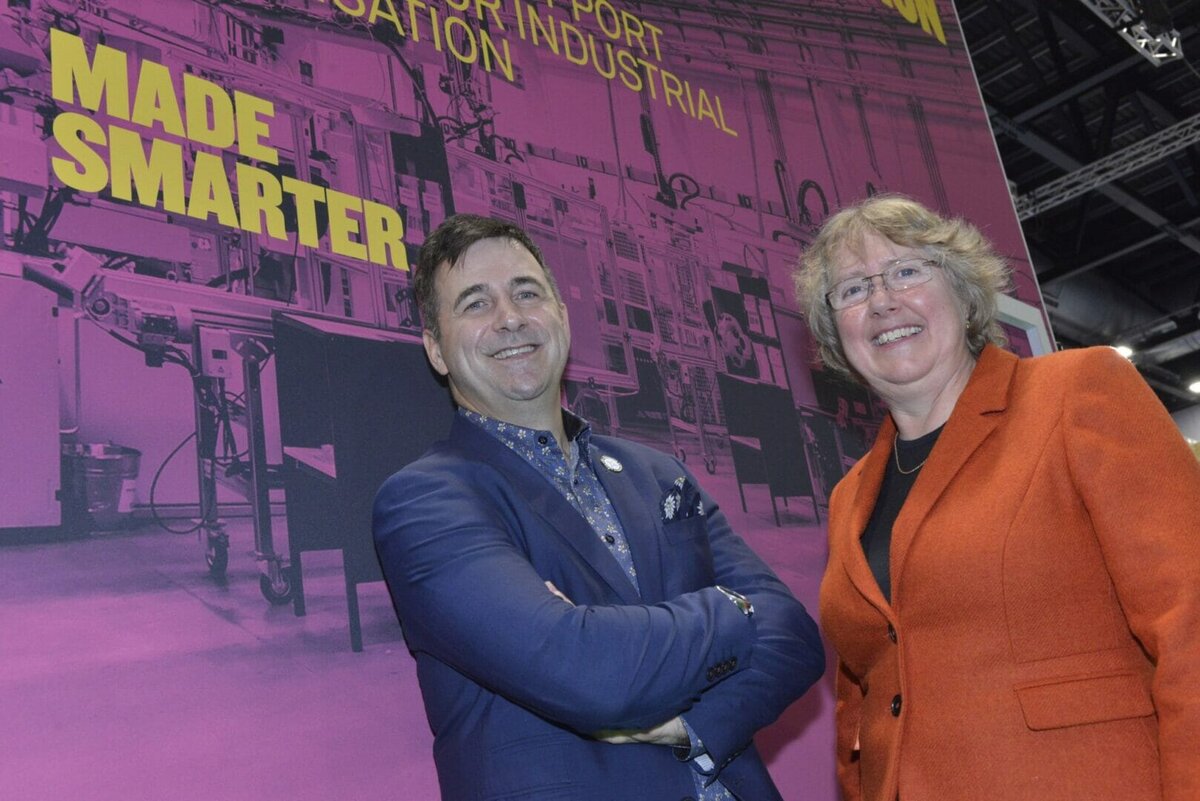Chancellor and Business Secretary both acknowledge the potential which the North West Made Smarter pilot offers the rest of the UK manufacturing
Following the launch of a £20 million North West pilot before Christmas, the manufacturers’ organisation Make UK (formerly EEF) yesterday called on the Chancellor Philip Hammond MP to increase investment in the Made Smarter business support programme and roll it out nationally as early as this year.
In a speech last night Dame Judith Hackitt CBE, Chair of Make UK, also warned that such initiatives were at risk from being clouded out by Brexit, and that in order to compete globally the government needs to put ‘rocket boosters’ on to the Made Smarter scheme.
Dame Judith Hackitt CBE said “The Industrial Strategy has spawned other very positive initiatives, in particular the Made Smarter campaign led by Juergen Maier from Siemens.
“It highlights how vital it is that the UK leads a new industrial revolution and makes the most of the rapid digitalisation of our manufacturing base.
“For Britain to thrive our SMEs must be equipped with the skills and technologies needed to make and export more and the pilot that has already been set up in the North West will make an important contribution to enabling SME uptake of technology such as artificial intelligence, automation, robotics and virtual reality.
“On top of this there is committed investment as part of the industrial strategy challenge fund which is designed to boost digital R&D for our sector.”
“It is critical that initiatives such as this do not become subsumed to Brexit and I would urge that further funding is made available at the earliest opportunity to ensure the pilot is rolled out across the rest of the UK.
“Made Smarter must become the UK’s international brand for the fourth industrial revolution. We need your government to put rocket boosters on this programme so that the UK can compete globally and adapt to new revolutionary digital technologies”.
“It highlights how vital it is that the UK leads a new industrial revolution and makes the most of the rapid digitalisation of our manufacturing base.
“For Britain to thrive our SMEs must be equipped with the skills and technologies needed to make and export more and the pilot that has already been set up in the North West will make an important contribution to enabling SME uptake of technology such as artificial intelligence, automation, robotics and virtual reality.
“On top of this there is committed investment as part of the industrial strategy challenge fund which is designed to boost digital R&D for our sector.”
“It is critical that initiatives such as this do not become subsumed to Brexit and I would urge that further funding is made available at the earliest opportunity to ensure the pilot is rolled out across the rest of the UK.
“Made Smarter must become the UK’s international brand for the fourth industrial revolution. We need your government to put rocket boosters on this programme so that the UK can compete globally and adapt to new revolutionary digital technologies”.
In response the Chancellor Philip Hammond described the Made Smarter pilot as a ‘ground-breaking programme’ adding that “…the point of piloting is to learn what works and what doesn’t. But I can absolutely promise you that what works will be rolled out in due course.”
Earlier in the day Business Secretary Greg Clark also talked about the significance of the Made Smarter initiative at Make UK’s annual conference.
Praising the fact that the concept had been initially driven by Siemens’ CEO Juergen Maier and the private sector, he said: “Based on Juergen’s work and supported by you we have had a huge response right across the UK from the manufacturing community from companies big and small in every nation of the United Kingdom. We’ve made substantial progress already.”
Donna Edwards, Programme Director of the Made Smarter North West pilot, said: “Getting such positive public support from Dame Hackitt and Make UK for the Made Smarter initiative is warmly welcomed and learnings from the North West pilot will clearly help to inform the programme as it evolves.
“For example, we have already discovered that while many smaller manufacturers in the region are keen to find out more about digitalisation, and how new technologies can increase their productivity, they don’t know where to go for expert advice and practical support to make it happen.
“This we anticipate will not be unique to the North West. Therefore our experience in delivering Made Smarter regionally will offer great insights into how it can be successfully scaled-up and rolled-out nationally going forward, something the Chancellor also acknowledged in last night’s speech.”
Made Smarter is an investment between government and industry which includes match funding opportunities and the provision of dedicated technical and business support for SMEs wanting to adopt more advanced manufacturing methods such as AI, VR, IoT, 3D-printing and robotics.
In the North West alone Made Smarter aims to engage with over 3,000 manufacturing SMEs and increase the region’s GVA by up to £115m. Up to 600 North West firms will also qualify for more intense support including mentoring from senior industry figures, grants towards the cost of new equipment, and other high-impact interventions.
The Made Smarter initiative is the result of the Made Smarter Commission – a partnership between the Department for Business, Energy & Industrial Strategy (BEIS) and the private sector. Co-Chaired by Business Secretary Greg Clark, and CEO of Siemens Juergen Maier, the Commission includes representatives from 17 leading UK manufacturers, technology companies and business representative bodies.

Dame Judith Hackitt CBE, Chair of Make UK,
In the Autumn budget, the Chancellor announced that £121 million of additional Made Smarter programme funding would be made available across the country as part of government’s £1.1 billion Industrial Strategy Challenge Fund.






